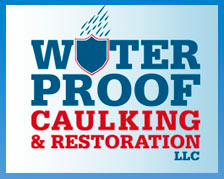If you own or manage a commercial building, you likely pay a fair amount of attention to all of its needs so that you can keep it in good repair for as long as possible. Conducting regular maintenance not only keeps your building visually appealing by tackling exterior damage, but it also prevents long-term troubles that are more costly to solve after they have worsened.
Commercial waterproofing is one method of keeping your facility in good repair, but you should be sure to prepare for your waterproofing service ahead of time in order to see the best results.
How Does Commercial Waterproofing Work?
Commercial waterproofing is the process of keeping water away from your building, in simple terms. This can be done in a variety of ways, from building physical walls and trenches to adding coating or caulk to your building to seal away its vulnerabilities and crevices.
When it comes to a good mix of affordable and highly effective, expertly installed caulk can do wonders for keeping water out of the most vulnerable places in your building. Caulk seals gaps and seams, such as around windows and doors, so that water cannot enter. Whether rainfall is the greatest culprit or you simply live and work in a moist or humid area, commercial waterproofing.
1. Identify Sources At Greatest Risk
The first step you can take to ensure the greatest success during your commercial waterproofing service is to identify the areas that are most in need of waterproofing. There is no reason to spend a lot of money waterproofing every square inch of your building if 80% of its surface is doing a fine job of repelling water already.
If you notice water damage inside, such as bubbling paint or stains on the walls or ceiling, do your best to trace them to their exterior source. Keep a close eye on the seams and cracks where pieces of your building join together. Examine your existing caulk as well to see if it has deteriorated or begun to pull away, allowing moisture to enter areas that were previously protected.
2. Discuss The Best Waterproofing Options For You
A skilled waterproofing contractor will have many tricks up their sleeve to keep water out of your building. From restoring your brickwork or masonry to address broken or damaged areas to caulking or applying sealants that will repel water and prevent it from infiltrating, a professional can guide you through your options. Not all buildings respond in the same way to waterproofing solutions, which is why the solution for you should be tailored to your situation.
3. Prepare The Exterior Surfaces To Be Waterproofed
Preparation of exterior surfaces is one of the most important aspects of waterproofing. For example, if you plan to redo your caulking to create a new seal against moisture, you will first need to remove the old caulk and prepare the seams for the application of new material.
Removing old caulk without damaging the surface under it can be a challenging task, so if you do not have the time or experience to tackle this project on your own, leave it to the professionals. An expert should be able to both remove your caulking and install a new caulk with a tight seal.
4. Schedule A Contractor At The Right Time
When you schedule your work it is critical. Many waterproofing solutions can be more challenging to install in the colder months, when materials may freeze. Consider, too, how rain may impact your installation, washing away applied sealants or preventing them from fully bonding or curing the way they should.
Plan your waterproofing service at a time of year when the weather is mild and sunny if possible; if your waterproofing needs are urgent, discuss your options with a pro to see which waterproofing solutions can thrive in the current climate.
Get Professional Waterproofing Commercial Waterproofing Services
If you are considering professional commercial waterproofing for your facility, you should be confident that it will be done right the first time and within your budget. The experts at Waterproof Caulking & Restoration would be happy to explain the variety of options available to you for keeping water out of areas in which it does not belong.
Reach out to schedule an appointment to learn more about caulking and other waterproofing methods that can keep your building safe, as well as to evaluate the specific risks facing your building and how to address them in a timely and affordable manner that lasts for years to come.
